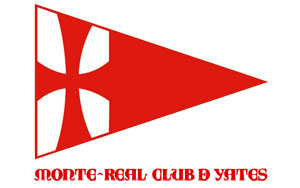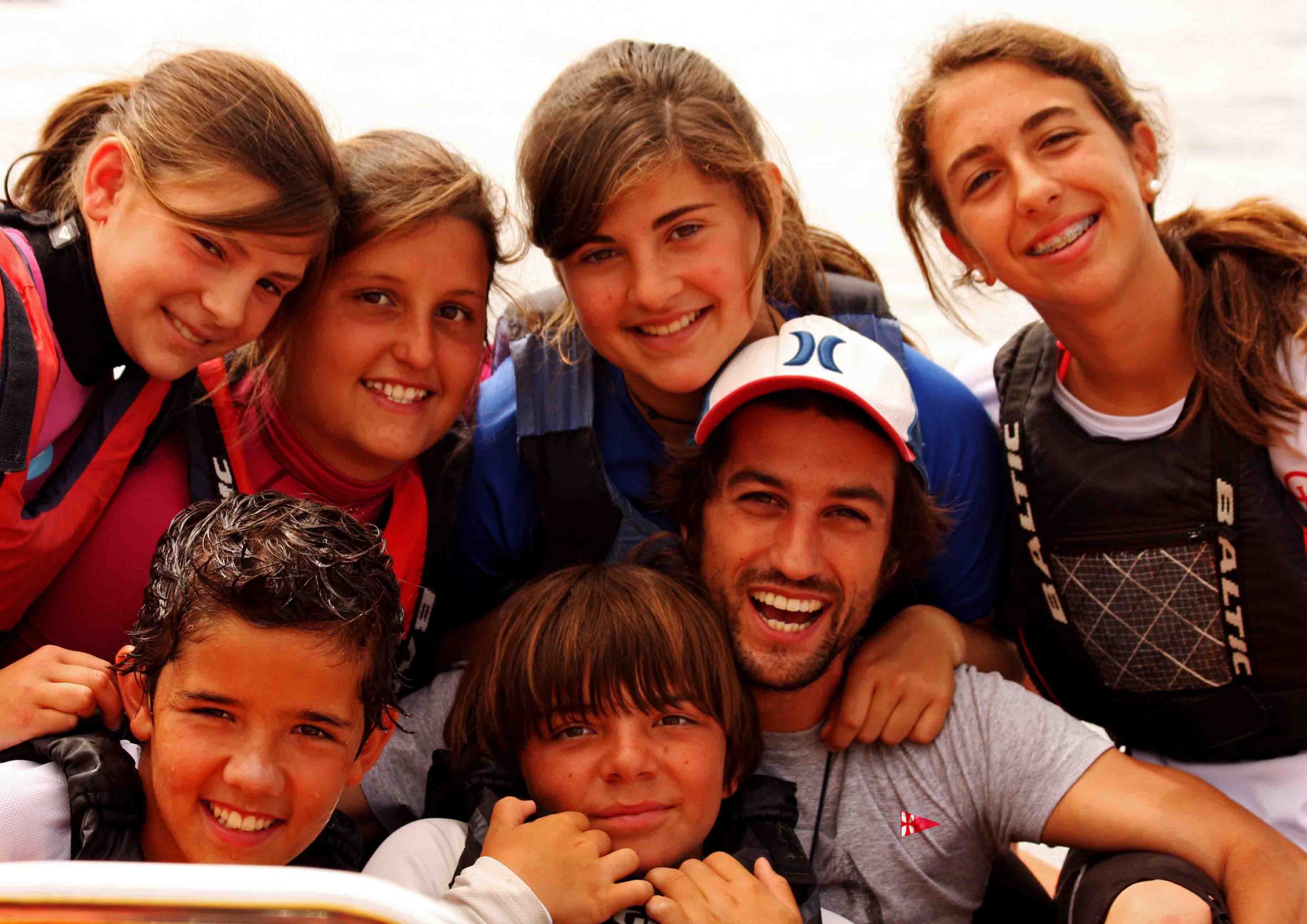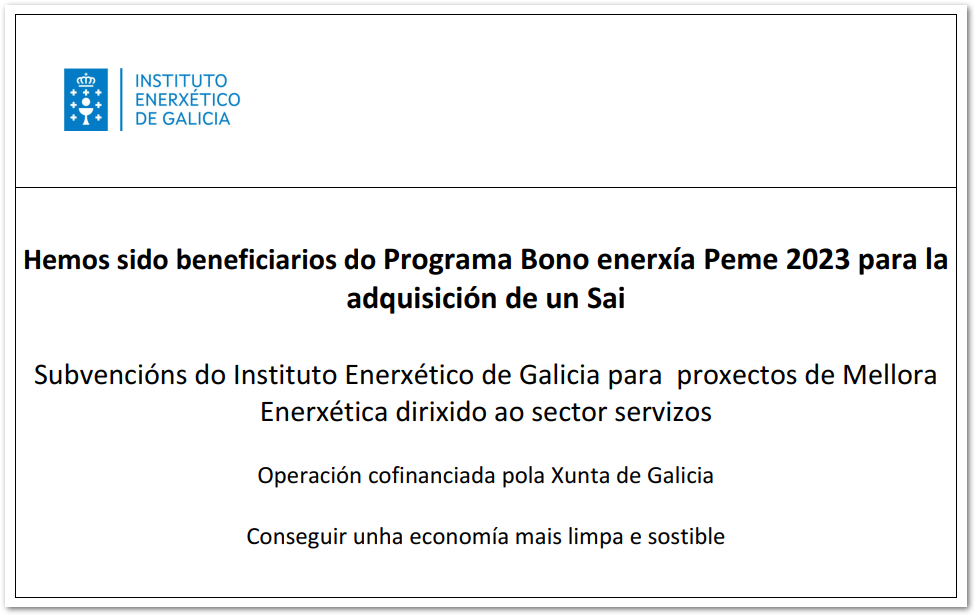INTERVIEW WITH SAMUEL MONTOUTO · MRCYB OPTIMIST COACH
Saying that Samuel Montouto has his feet firmly planted on the ground is a good metaphor to explain his way of teaching and educating children, with great commitment and responsibility; but in reality, Samuel has spent his whole life with his feet in the water. The sea has been and is the undisputed protagonist of his life, and the Monte Real Club de Yates is the place where he tries to transmit his love for the sport of sailing to future generations of sailors.
Level 2 graduate by the Galician Sailing Federation, he has been training the club’s Optimist teams for years. His students have gone to Spanish championships, to competitions throughout Galicia, to Galician team clinics and, in recent weeks, they have participated in the Optimist class qualifying regattas held in Sanxenxo and A Coruña. Those who work with Samuel say that he has an excellent technique, but they highlight, above all, the empathy he achieves with the boys and girls he trains.
Samuel, training such young boys and girls (between 9 and 15 years old) to compete seems very complicated, is it really?
A priori, or seen from the outside, it may seem somewhat complicated, but nothing is further from the truth. Thanks to the good work carried out by the monitors and coaches in the previous teams, when the children arrive in my group they usually have very good knowledge to start in the competition and, in addition, they are very motivated to do so.
Perhaps the greatest difficulty is finding the keys to make them champions, something that has to be worked on little by little, with time and patience. In any case, the sailors I have trained at the MRCYB, despite their young age, have always behaved in an exemplary manner, like authentic “little adults”, willing to make the maximum effort and give everything with each challenge.
How do you work with the little ones? What is the process for a boy or girl who has only been sailing for a few years to make the leap to competition?
Luckily, as I mentioned before, when the children arrive at the regatta team, they are already well-rounded thanks to the work that is done with them in the previous groups that we have at Monte Real, one for initiation and another for introduction to regatta.
My job is to work on that basis, trying to get the kids up the competition ladder. The key is to gradually expand your knowledge and intensity of training. In addition, I treat its strong points, to strengthen them, and also the weak ones, to improve them. And always do it without ever losing sight of something that I consider essential in this sport, which is that the child has to have fun competing.
Actually, the coaches do not decide which students have to compete, because they are the ones who demand it. What we do take care of is assessing their technical, tactical and psychological levels for the competition, so that they arrive at the regattas with the best possible preparation.
What benefits does participating in a competition bring to children?
There are many, but I would highlight two of them all: the desire to constantly improve oneself and the creation of very close bonds between children.
As for the desire to improve, I am not only referring to the constant improvement in the sea, trying to be better every day, facing problems of waves, wind, currents… but also to the evolution that children experience when passing from one class to another. . Many end up in Laser, 420, Vaurien… but Optimist is, together with the Cadet, the base on which to start a lifetime of navigation, and where we must most cultivate their spirit of improvement.
As for the creation of relationships of companionship between children, it is something fundamental, especially at these ages. With each training session and each regatta, very strong bonds are created and reinforced between them, which make competing in Optimist, despite being an individual sport, also something collective, a group sport. And best of all, in many cases, those bonds that are created will last a lifetime.
In Galicia, the nautical clubs have begun to work more and more with their quarries, with the aim of guaranteeing the future of sailing in the community. In that sense, the bet is clear, but what else is needed for this sport to end up triumphing?
I believe that, to a certain extent, it is already succeeding. Perhaps it is not seen as clearly as with football or other more media sports, but in the qualifying regattas for the Galician ranking of Optimist we are being an average of 120 sailors, and that is already a success.
Obviously, with greater help from the administrations and greater diffusion in the media, this sport could succeed even more. It is a task in which we must all do our bit.
How is the work of the Monte Real Club de Yates in this regard?
I think we are doing a very good job at the club. And that is something that is seen in the figures. In recent years we have experienced significant growth in the number of students we have, both in regatta teams and in the Sailing School.
Right now we have five well-differentiated dinghy groups. Of these, four are part of a very well oiled chain. The children start from very young in initiation, and depending on the skills of each one, they go from group and level until they reach the competition, both in individual classes (Optimist), and doubles (Cadet and 420). They are about 40 small sailors who aim high and who encourage us to continue working hard with them.
And this does not stop there. The continuity of this system is reflected in two groups of adults, one for light sailing and the other for cruising. In addition, we are giving a lot of importance to the dissemination of our activities, both in the press and on social networks, and that always helps in the task of making the sport of sailing more visible.
It is an interview with Rosana Calvo
If you have any questions for Samuel, you can write to us at prensa@mrcyb.com and we will send it to him




